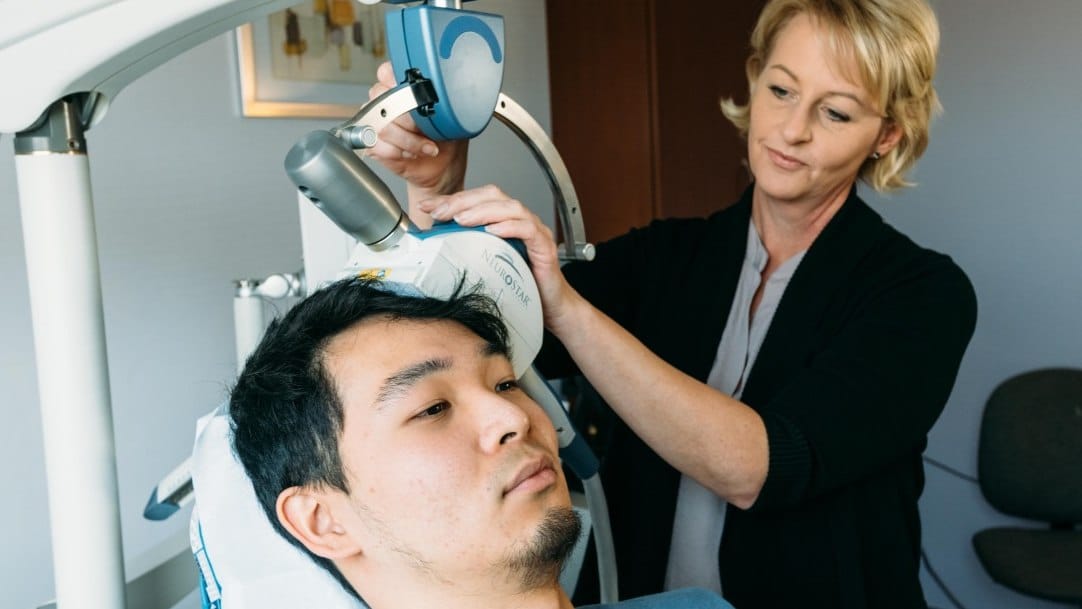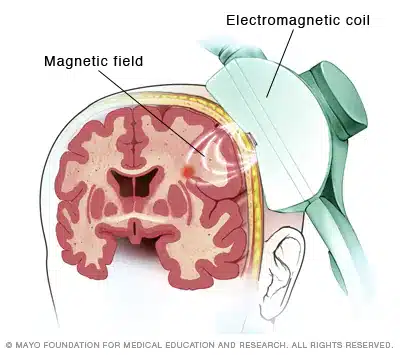
Stanford researchers have discovered a strange treatment that seems to help patients with treatment-resistant depression: magnets.
The idea for this strange method came after scientists found that patients with treatment-resistant depression (TRD) had brain signals seemingly flowing in the wrong direction. The magnets are used to reverse these signals so that they are traveling in the ‘right’ direction.

This treatment has been termed Transcranial Magnetic Stimulation (TMS) and it is entirely noninvasive. All the patient needs to do is sit down for less than an hour while a doctor or technician waves a special device with a magnetic coil. The coil uses magnetism to stimulate nerve cells in the brain without risk of damaging them.
World-renowned YouTuber and educator Vsauce explored an early form of TMS in his YouTube show, Mind Field.
The discovery of misdirected brain signals in depression patients was remarkable in itself. Scientists have been looking for direct links between changes in the biology of the brain and subsequent mental health effects of patients for decades at least.
Is This New Treatment a Big Deal?
Depression is one of the greatest causes of pain and suffering in the world, worsening the lives of about 10% of the global population. According to the World Health Organization, depression is also the leading cause of disability in the world.
Biotech companies are scrambling to find new treatments for various mental illnesses including depression because any promising find could drastically better the lives of millions and millions of people. Therefore, Transcranial Magnetic Stimulation is certainly a big deal because it seems to work incredibly well for patients suffering TRD.
A literature review of TMS showed that about 50-55% of patients respond to TMS and 30-35% have their TRD go in remission. This is remarkable, especially because of how difficult it is to treat TRD.
TMS is already approved by the FDA for depression, but only when other treatments fail. It is also approved for other conditions like obsessive-compulsive disorder (OCD), migraines and even tobacco addictions.
Along with AI, noninvasive treatments have been a major focus of researchers pushing the healthcare world forward.
TMS is not the only noninvasive physiological treatment proposed by researchers in recent years. Another brilliant treatment for brain disorders uses ultrasound machines to massage open the blood-brain barrier. This enables the delivery of specialized medicines that wouldn’t be able to reach the brain otherwise.
Popular YouTuber Veritasium covered this breakthrough treatment in a well-crafted educational video:
The advent of these non-invasive treatments for some of the worst mental conditions could be one of the greatest achievements in medicine in the past decade. The technology still needs to be improved and tested with large populations of subjects, but it’s incredibly promising.
Related Articles:
Best Biotech Stocks to Watch in 2023
Scientists Develop Self-Cloning Crops Poised to Revolutionize Agriculture
Do Your Own Research With the Help of AI to Give Your Trading a Massive Edge
What's the Best Crypto to Buy Now?
- B2C Listed the Top Rated Cryptocurrencies for 2023
- Get Early Access to Presales & Private Sales
- KYC Verified & Audited, Public Teams
- Most Voted for Tokens on CoinSniper
- Upcoming Listings on Exchanges, NFT Drops